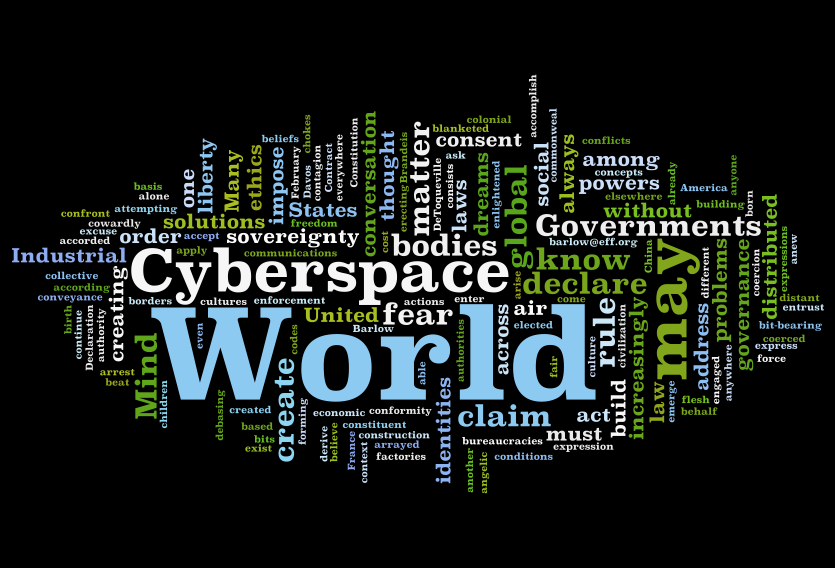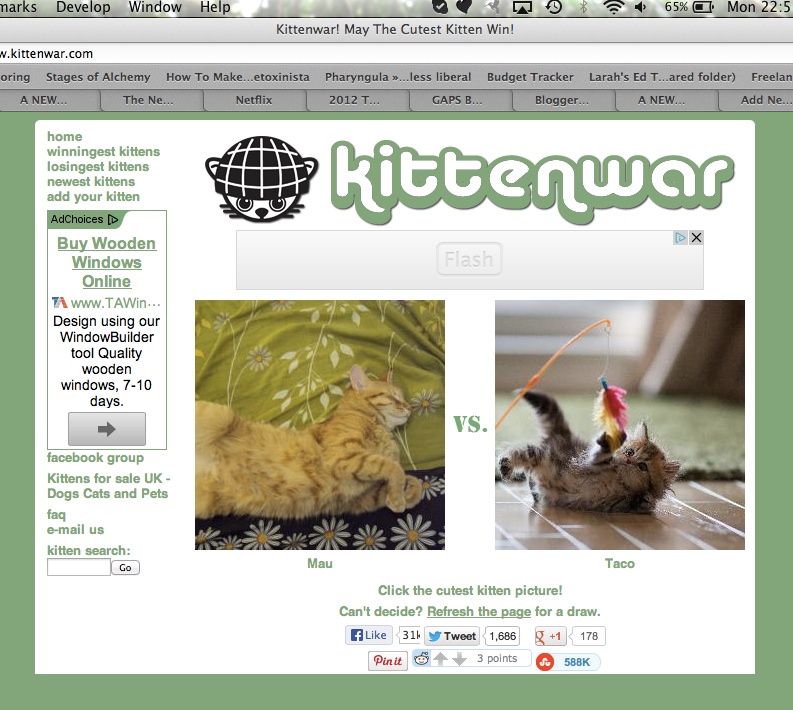I’ve been off my game – out of sorts, ill at ease, and just plain ill – since mid-August. I’ve spent a lot of time in bed, and not a lot of time outdoors; boredom has led me to wander the avenues of cyberspace far more than usual. It’s led me to ponder the idea of cyberspace as a ‘place’.

It isn’t, of course, just one place. Every online environment is its own virtual place. I don’t just mean online environments which seek to mimic the experience of being in an actual place, like Second Life. Every platform, every website, every blog, is its own virtual place. Patheos has a different look, feel and culture to Beliefnet, just as delicious does from Stumble Upon, twitter does from Facebook, LiveJournal does from tumblr, and on and on.
And within these web platforms, these online places, there are further differences. Patheos Pagan channel is its own online place, as are each of the faith channels here. In this, virtual places are like actual places: each continent on the planet is different, each country in every continent is different, each region in every country is different, and so on and so on, down to individuals dwellings and gardens, rocks and hills.
The thing that most distinguishes virtual places from actual places is the ease of movement from place to place, and the ease of both building and destroying places. These factors are both a boon and a danger.
If I want to begin friendships with people on the opposite side of the world, I can. If I want to spend all day flitting from blog to website to social media stream, I can. This is great if, like me recently, one is too unwell to do very much else. This is awful if one has a family to take care of, or a job to go to. Everyone who’s spent more than a few minutes in front of a web browser knows how much of a time sink the Internet is.

If I want to create a blog, or even a whole website, I can go to a free service like WordPress.com or Blogger and do it. If I want to create a private group for my friends on Facebook or Google Groups or Yahoo! groups, to make it easier for us to connect and share our lives, I can. I don’t need any special skills or training, beyond knowing my way around a user interface and maybe having some pictures to upload.
But that freedom also has a dangerous side, as the Pagan community has seen recently. Just as groups for friends are easily created, so are groups to promote hate speech and violence. There has been a rash of Facebook Pages, apparently created by Christian groups in various African countries, calling for the death of Witches and ‘Wizards’.
To most people in Europe, the Americas and the Antipodes, such calls are easy to scoff at. But in many places in the world, an accusation of witchcraft – usually meaning maleficent working of magic – is enough to cause a person to fear for their safety, if not for their lives. Even where witchcraft is understood as a religion rather than as a type of spiritual warfare, in our communities we know that this does not always protect Witches from prejudice, discrimination and attacks on certain freedoms and aspects of our lives.
It took a concerted effort on behalf of lovers of religious freedom around the world to pressure Facebook to remove those ‘Death to Witches’ Pages from their service, despite the obvious nature of the hate speech involved. In any place, time and culture, an attack on a minority group which goes unremarked and unchallenged makes attacks on that minority group more acceptable and unremarkable in the surrounding culture, making prejudice, discrimination, and eventually verbal and physical attacks seem normal and nothing to be upset about. (If you doubt me, I can point you to the research from which these insights arose – just give me time to find the references.)
Because movement between virtual places is so easy, cultural norms from one online place can spread very easily, far more easily than norms in the actual world; just look at the speed with which certain videos have gone viral, or the spread of memes far beyond their original, in-group settings.
This speed means that we must all exercise due caution in how we express ourselves in online settings. Free speech is important, but so is finding ways to express our views which do not promote or encourage prejudice, discrimation or violence. Online places have been and I hope will continue to be some of the most free in the world.
But as someone once said, “The price of freedom is eternal vigilance.”












